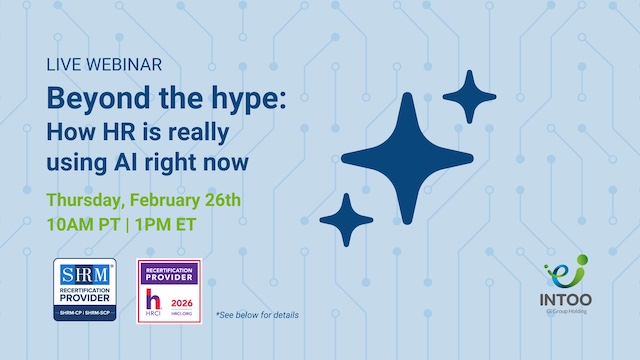Soft skills are positive qualities that can be applied to any occupation, such as demonstrating good time management, thinking critically, effectively employing conflict management techniques, and working well in teams. Employees can constantly grow as professionals by obtaining new soft skills and strengthening those that they currently possess, all to the benefit of their employers.
From identifying existing personal strengths and weaknesses to upskilling with the help of professional coaching services, in this blog we take a look at the strategies your business and its employees can use to acquire and improve these beneficial characteristics.
How to Develop Soft Skills in the Workplace
Learning and developing soft skills is essential to both personal and professional development. However, the learning process doesn’t happen overnight. It takes hard work, help from others, and a lot of patience. Below we take a look at some of the ways your business and its employees can start to develop soft skills in the workplace.
Identify and assess the skills you want to develop
It can be difficult to hone a soft skill without determining which specific traits need to be enhanced. A good place for employers and team leaders to start when looking to strengthen their employees’ skills is to objectively look at their workforce as a whole and think about which aspects can use improvement. For example, an individual employee/team may have excellent problem-solving skills but may struggle when it comes to social skills needed for client meetings.
This input from managers can assist with identifying what soft skills to develop. They can offer new perspectives on their employees’ current abilities that might not have been noticed by the individuals in questions. Finally, using assessments specifically designed to identify soft skill strengths and weaknesses can offer even more specific ideas for development. Holding learning sessions and workshops for certain teams can be a good way to assess and upskill identified employees in this way.
 Research the correct development programs, coaching, and workshops
Research the correct development programs, coaching, and workshops
A training program can be a helpful resource for improving soft skills so long as the program is relevant to the desired targeted ability. Typically devised and delivered by expert career coaches, the information contained in these courses should enhance employee knowledge of a particular skill rather than broadly covering multiple traits. However, employers should always make sure to find training programs from reputable sources, such as INTOO, to ensure only authoritative information and training is provided.
Knowing how your employees operate can also make it easier to decide which program is best suited to your team’s preferred learning style. If they would rather watch videos or listen to lectures to learn about topics, then you may wish to use a program that isn’t heavily reliant on classroom-based learning or written information, for example. With so much professional help to choose from, it’s easy to find a program to suit the needs of individuals and entire teams alike.
Make use of online courses and software
Using technology for assistance is highly beneficial for employers looking to improve their staff’s soft skills. Online courses use experienced instructors to provide people with facts and advice about specific skills that they might never learn through in-person experiences. Virtual lessons are convenient to access and allow individuals and teams to progress through the course at their own pace.
Encourage practical learning
Encouraging employees to apply the information they have learned through training programs in real-life situations will help them further develop their soft skills. Constant practice can lead to better habits and increase familiarity with these characteristics. For example, if you want employees to strengthen time management and prioritization skills, you’ll want to ensure they are regularly encouraged and monitored when it comes to meeting deadlines and juggling a number of different tasks and projects at once. This could include gradually building up a team’s workload until they are comfortable with multitasking and managing expectations. Similarly, you could give your employees assignments that will help them to develop other specific soft skills. Those interested in working on skills such as public speaking and communication can volunteer or be asked to give presentations at meetings, for example. Professionals who wish to become better team players may ask to join/or be placed on more group projects.
 Seek feedback from your employees
Seek feedback from your employees
It can be beneficial to your business and your workplace to seek feedback on the quality of your skill development methods. Positive feedback will let the business know their learning system is effective, while criticisms can shed light on what changes ought to be made to improve employee experiences. Encouraging transparency with your employees can also strengthen their soft skills such as communication, collaboration, and confidence.
Encourage reflection
Developing employees’ soft skills is a continuous process that requires people to self-reflect. Both employers and their staff should take the time to think about their current collective and personal skill levels, and what can be done to improve or maintain these abilities.
If, after a period of reflection, you as an employer or employees themselves still believe certain soft skills require more improvement, you can focus on finding further forms of training to address these areas of improvement.
Learning how to develop your employees’ soft skills is essential in building a stronger and more efficient workforce. For this reason, as an employer, it’s important to actively seek out ways to improve your team’s skills, whether it be through training programs or in-person experiences in the workplace. After all, those who continue to self-develop with the help of their employer will become stronger assets to any organization. INTOO’s coaches help employees in every stage of their career develop strategies to meet their goals, while employers reap the benefits of increased engagement, productivity, and retention. Learn more about how our career development programs can benefit your company.


 Research the correct development programs, coaching, and workshops
Research the correct development programs, coaching, and workshops Seek feedback from your employees
Seek feedback from your employees








